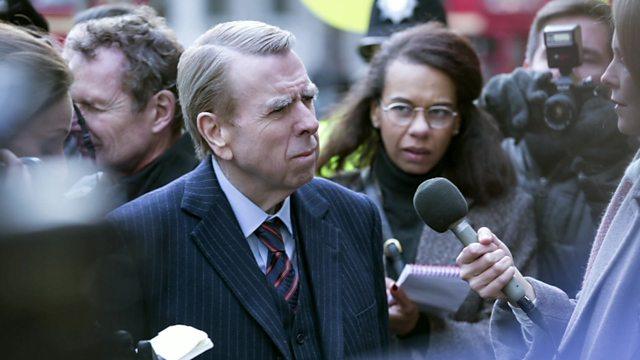The true story behind denying the Holocaust
- Published
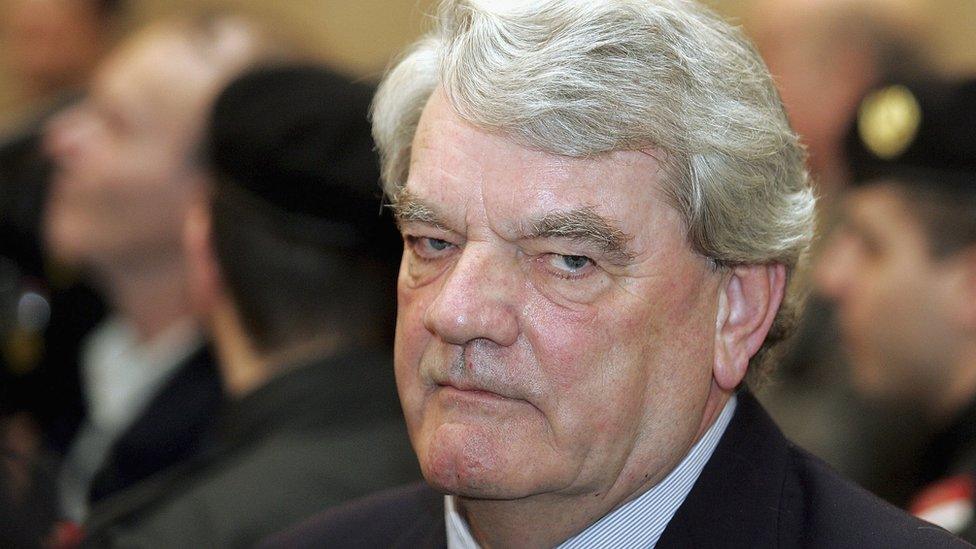
I recall David Irving as an intimidating presence
In late March 2000, only a few days before the verdict in the high profile libel case he had brought against Deborah Lipstadt, I went to interview David Irving.
It may be hard to imagine now, but before the trial verdict he still retained some of his reputation as a historian.
It was not impossible - though pretty unlikely - that he would win the case.
Mr Irving had claimed Prof Lipstadt's book, Denying the Holocaust: The Growing Assault on Truth and Memory, had destroyed his livelihood and generated "waves of hatred" against him.
In her defence, Prof Lipstadt had to show that what she had written was true and that Mr Irving deliberately distorted history.
Timothy Spall on playing Holocaust denier David Irving
In the film Denial, released this weekend, Timothy Spall captures Irving's bluster, but for me the film as a whole does not quite convey the threat of Mr Irving at the time.
The story is told from Prof Lipstadt's point of view.
At times Mr Irving seems a somewhat ridiculous figure, easily flattered into accepting a judge-only trial, rather than a jury, which would probably have worked better for him.
I recall him as a more intimidating presence, especially when I encountered him for the first time, marching down the dark corridor of his Mayfair flat.
His Danish partner Bente Hogh had opened the front door and, as she was making a cup of tea, we chatted in her - and my mother's - language.
Mr Irving overheard and came to see what was happening.
I explained I was half-Danish and he paused to look me up and down, taking in my dark hair and eyes. "Well!" he said, "you'd never know it to look at you!"
And then, perfectly polite, he invited me to his study where we could talk.
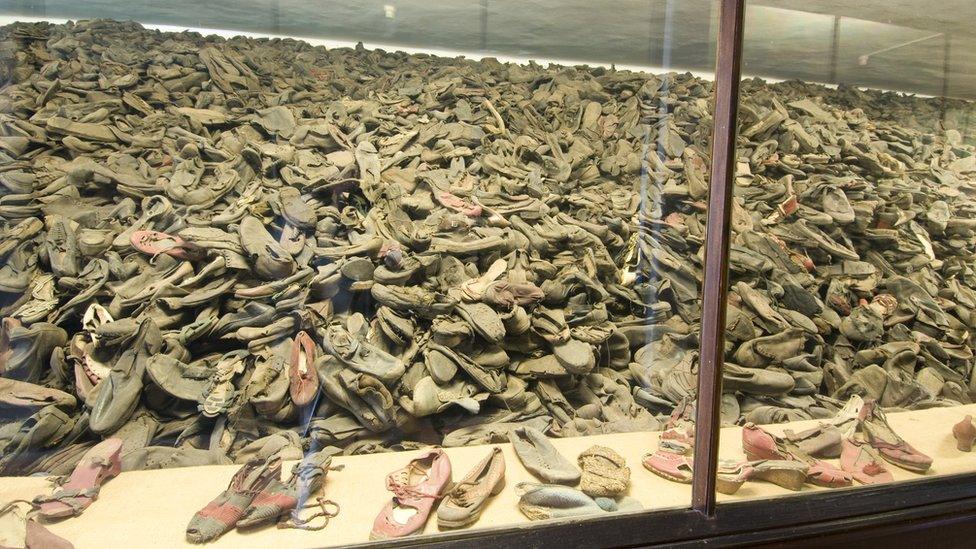
In the film, the lawyers and Prof Lipstadt see the glass-fronted cases full of shoes at Auschwitz
In Denial, the lawyers and Prof Lipstadt travel to Auschwitz for research.
They see the glass-fronted cases full of suitcases and shoes in Auschwitz I, property of murdered Jews from across Western Europe.
Outside in the the freezing Polish winter, they walk round the huge second site at Birkenau, down the steps into the remains of a demolished gas chamber.
Later, Richard Rampton QC is shown angry that there has not been a full detailed scientific study of the whole site, to remove all possibility of doubt.
"Where's the proof?" he shouts.
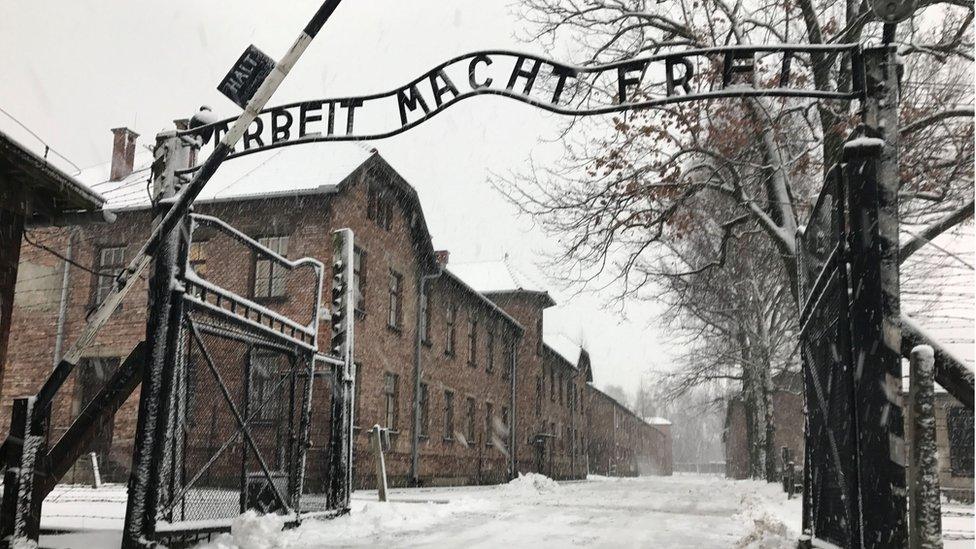
David Irving put Auschwitz at the centre of his case but had never visited the site
I knew Auschwitz unusually well as I'd joined the Today programme after three years as the BBC Warsaw correspondent.
At that time, the late 1990s, Auschwitz was often in the news because there was international concern about the site and its upkeep.
The post-Communist government wanted to build better relations with Jewish communities worldwide, so the president took personal responsibility for Auschwitz improvement.
One way and another, often with survivors, I had visited the site many times.
Although Mr Irving put Auschwitz at the centre of his case, he had never been there himself.
In the quiet of his study, as soon as I brought out the microphone, Mr Irving spoke energetically and confidently.
"If I carry the day on Auschwitz," he told me, "if I'm right on crematorium number two at Auschwitz then as far as I'm concerned I'm right on my position on the Holocaust: that it has been grossly inflated and there's been a hell of a lot of lying by the eyewitnesses and I don't need to prove them right on the other camps as well."
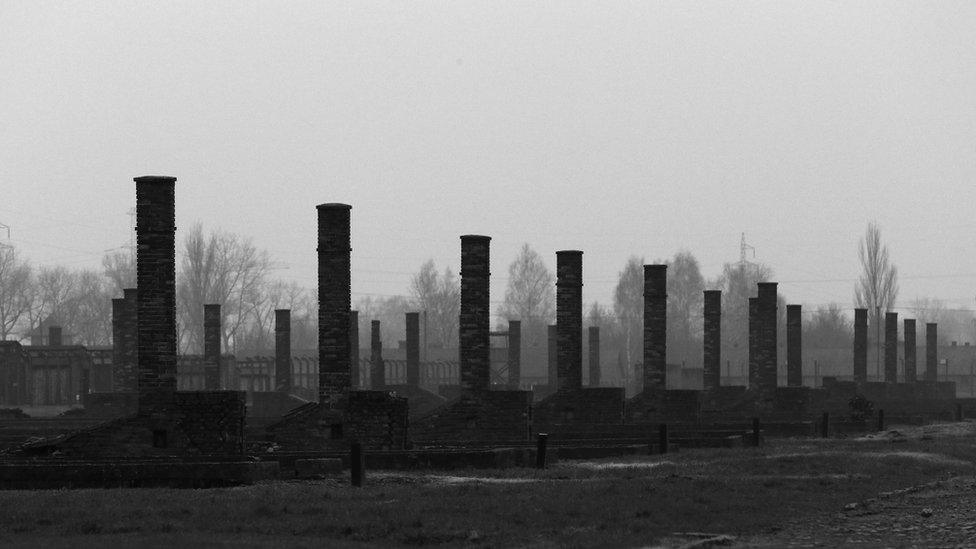
Chimneys are all that remain of detention blocks destroyed by the SS at the end of World War Two at the Auschwitz II Birkenau extermination camp
In the film, Prof Lipstadt is angry that eyewitnesses, Auschwitz survivors, are not called to give evidence. Written testimony was employed by the defence instead.
Mr Irving had been confident he had demolished these accounts.
He told me: "They produced only five eyewitnesses and it's always the same five eyewitnesses,"
I pointed out that there were scores of living eyewitnesses and that I had met them myself.
"Not so," he retorted, with a half cough, half laugh, effectively calling me a liar.
I said that just by researching the subject he would have come across many survivors. He denied it.
I explained that I had lived in Poland for years, told him that I knew Auschwitz well, had visited often.
"And what did they show you?" he asked, leaning forward, suddenly more interested.
"What they show everyone," I replied.
"Did they show you the gas chamber?" he asked. I replied: "You know very well the Germans blew them up as they left."
And then, once again, he simply cast doubt.
"Well somebody blew them up. I don't think it was necessarily the Germans, it was either the Russians or the Germans, we don't know which. I mean this is the kind of extraordinary grey area which just hasn't been properly researched."
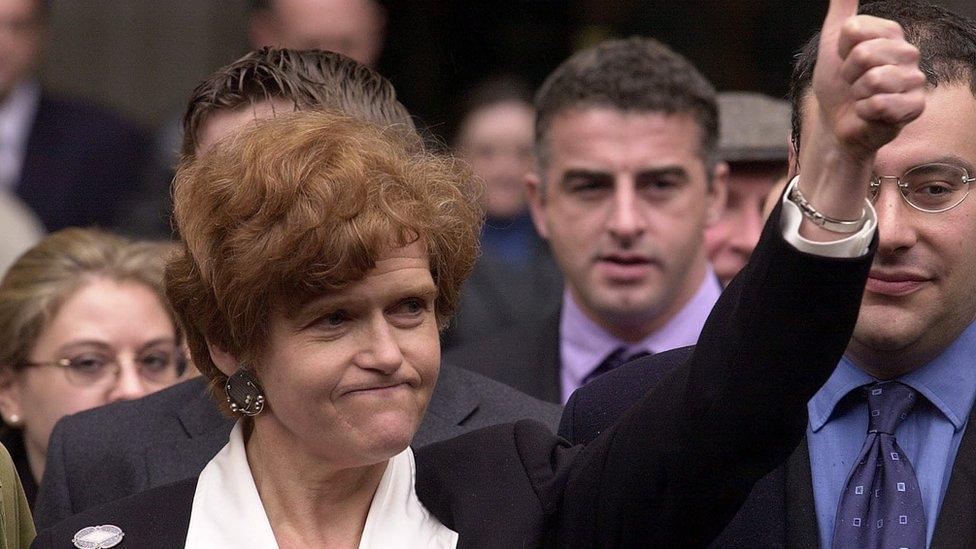
Prof Lipstadt, Penguin and their lawyers won the case in April 2000
Mr Irving's posture through the 32 days of court was that of the sceptical historian - always looking for the documentary proof.
It was only by establishing that his political views had directly affected his work, that Prof Lipstadt, Penguin and their lawyers could win the case.
And as Denial shows, that was neither simple, nor straightforward: it required tremendous effort, months of work from many researchers and a brilliant legal mind in Mr Rampton to marshal the argument.
In April 2000, Mr Justice Gray delivered his damning verdict.
He found the charges against Mr Irving "substantially true".
He said: "Irving was motivated by a desire to present events in a manner consistent with his own ideological beliefs, even if that involved distortion and manipulation of historical evidence."
In the film, that is where it ends - but today Holocaust denial is alive and well on the internet.
Last December it emerged that asking Google "Did the Holocaust happen?" threw up as the first answer a right-wing, Holocaust-denying site.
There was an outcry, Google has now acted and now the search returns are very different.
- Published15 January 2017
